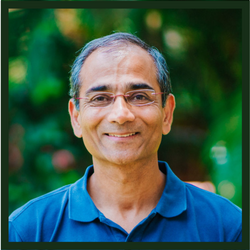An Ethic of Responsibility

Mr. Ravi Sonnad, Founder & CEO — Enabling Leadership
Human beings organized themselves into communities to help each other. Their shared identity allowed them to agree to a set of values and their responsibility towards the community.
As the world has become increasingly interconnected and interdependent, using the parameter of a local community, or even a nation-state is less than adequate.
Today, our daily actions and decisions have repercussions well beyond physical boundaries. We are tightly connected through media and telecommunications, travel and migration, trade, and international regulation.
More importantly, we share the same planet.
Unfortunately, we have not adjusted to this new reality, and the fear and uncertainty that change brings have people desperately clawing for an identity they can relate to and find comfort in country, religion, or language.
But putting our heads in the sand only makes things worse — you only need to look at the political state of the world to understand the implications. We need to develop and adopt a paradigm that fits today’s reality.
Fundamentally, this starts by identifying as a Citizen of the World, which then results in a globally shared set of values and a responsibility for the world.
| “An ethic of care for the world”- Hannah Arendt
Bethania Assy’s (a professor in Rio de Janeiro) recent book, “Hannah Arendt: An Ethics of Personal Responsibility” explores three levels of “ethics of responsibility”- a responsibility towards how we make our presence in the world, a responsibility to develop opinions through engagement with others; and a responsibility to the world through the consistency of our actions. All three levels are deeply interconnected, for we show who we are through acting and judging with our peers, and in so doing, we maintain and care for the public space that constitutes the world.
The children in the programs at Enabling Leadership learn to become role models, global citizens, and positive contributors. They learn to be flexible, creative, and proactive. They learn to think critically, solve problems, and work together in teams and groups. Interestingly, these same skills and attributes are increasingly recognized as essential to succeed in the modern world and the workplace. The idea that a Leader “takes responsibility for his or her future and our combined futures” forms an integral part of our Leadership Framework. It starts with an “Ethic of Responsibility” — for us, for others, and the world.
This article is part of the IvyScope Issue November 2021 click here to view the Newsletter.